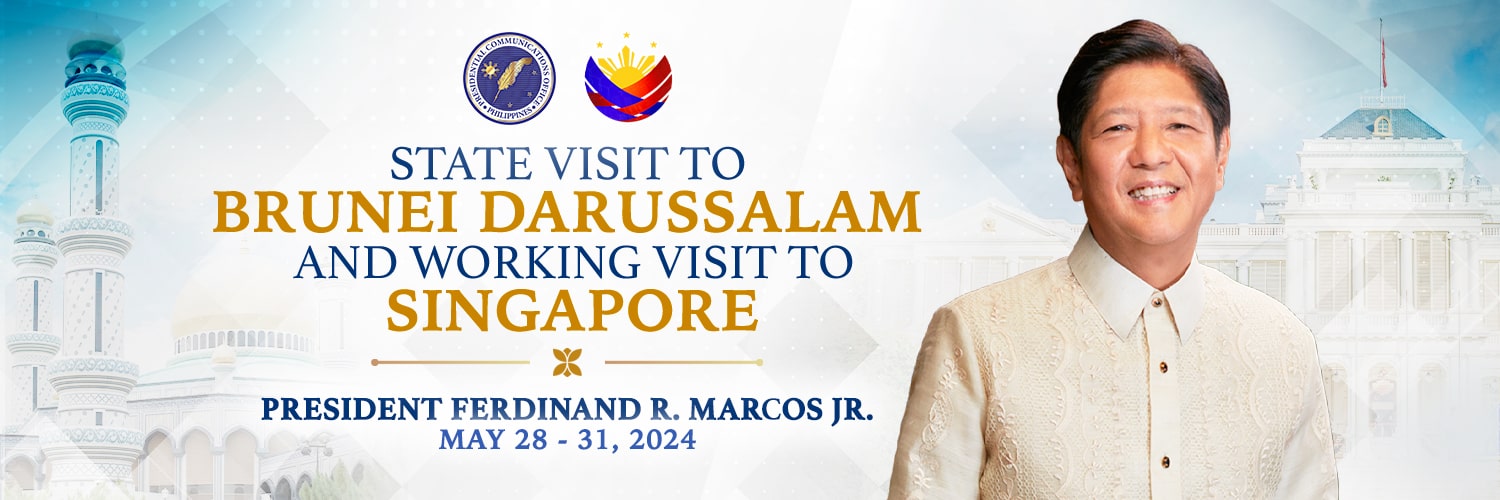
In his historic address for the 21st International Institute for Strategic Studies (IISS) Shangri-La Dialogue in Singapore, President Ferdinand R. Marcos Jr. on Friday unveiled ‘seven realities’ or challenges blurring the way for a united community of nations.
Talking before a global audience of defense stakeholders, President Marcos also bared ‘three constants’ or solutions that should guide nations in preparing for the challenges ahead.
“In the midst of these significant shifts, I see seven realities in the Indo-Pacific,” President Marcos told the delegates of Asia’s top defense forum attended by Singapore’s officials including President Tharman Shanmugaratnam, Prime Minister Lawrence Wong, Senior Minister Lee Hsien Loong, IISS Executive Chairman Sir John Chipman and representatives of other nations around the globe.
The first reality, according to President Marcos, is that the future of the region will be determined by many nations. He said each of them has its own unique experiences and aspirations. “Yet their respective agencies are being challenged by attempts to undermine our faith in prevailing international norms,” the President added.
The President identified the second reality as the strategic competition between China and the United States that is permeating the evolving regional landscape. Their rivalry is constraining the strategic choices of regional states, he said. Their contest is exacerbating flashpoints and has created new security dilemmas, he added.
Another reality, the President said, is that the region looks to ASEAN as the institution that should hold the center amidst these evolving dynamics. However, he said challenges threaten the unity and centrality.
Fourth, as geopolitics continue to permeate the global governance architecture, the role of bridge-builders has become increasingly important in forging decisive multilateral solutions, the President said.
As for the fifth, President Marcos said the global commons will continue to be crucial to the security of all states in the region. He said access of developing countries to the high seas and outer space, and to the peaceful uses of science and technologies, is crucial to international development.
The sixth reality, he said, is that climate change remains a deadly challenge for the region and for the world. It is the first truly global threat, President Marcos said. “For the first time, we face a crisis that affects every single human being on earth and requires action from every single human being as well,” he stressed.
“And finally, the development of advanced technologies is rapidly transforming human life and experience,” President Marcos said of the last seven realities. “These technologies will solve many of our old problems, but they are so powerful that they also have the potential to disrupt our political and our social orders,” he stated.
“These seven realities muddle the waters that we have to navigate in our collective journey as a community of nations. We cannot reverse course. We must persevere. We must push through,” President Marcos stressed.
Meanwhile, the President named the three guiding constants for nations in dealing with future challenges. First, the sovereign equality of states must remain sacrosanct. Second, ASEAN and ASEAN-led processes must remain central. And third, the rule of law and the integrity of multilateralism must prevail.
The President said these three constants guide the country’s efforts to prepare for the challenges ahead. “We need to begin by resoundingly rejecting misguided interpretations that paint our region as a mere theater of geopolitical rivalries,” President Marcos declared.
The current juncture does not call for a revision of the regional order. Instead, it calls for a reaffirmation of the wisdom of San Francisco in 1945, of Bangkok in 1967, and of Manila in 1982, he said.
“Let us return to San Francisco and reaffirm the sovereign equality of all states… Let us also return to Bangkok and support ASEAN’s efforts to build a rules-based, people-oriented, and [people-centered] regional community… let us return as well to Manila and reaffirm our common understanding of how international law governs the peaceful settlement of disputes,” the President said.
“Amidst misleading narratives that seek to discredit international legal procedures, there is a need to reaffirm that those modalities are an expression of good faith. They are a service to the progressive development and codification of international law. They are never an unfriendly act,” he added. |PND

